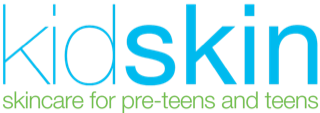Acne is a common rite of passage during the teen years, affecting nearly 85% of young people. This blog post delves into the causes of teen acne and offers effective solutions tailored for young, sensitive skin.
Understanding the Causes of Teen Acne
Hormonal Changes: The onset of puberty brings a surge in hormones like androgens, which can increase the size and oil production of sebaceous glands. The American Academy of Dermatology (AAD) explains how these hormonal fluctuations play a significant role in the development of acne.
Genetics: If a teen's parents had acne, they are more likely to experience it too. Genetics can influence how susceptible one is to acne, as noted by dermatology research.
Stress: Stress doesn't directly cause acne, but it can exacerbate it. The Mayo Clinic discusses how stress hormones can increase oil production, which in turn can lead to acne.
Diet: The debate on diet and acne is ongoing, but certain foods may trigger breakouts in some people. According to Harvard Health, foods with a high glycemic index and dairy products have been linked to acne in some studies.
Skin Care Products: Using the wrong skincare products can worsen acne. The AAD recommends non-comedogenic or non-acnegenic products, as they are less likely to cause breakouts.
Effective Solutions for Teen Acne
Proper Skincare Routine: Establishing a gentle, effective skincare routine is crucial. This involves cleansing the skin twice a day with a mild cleanser, as recommended by dermatologists.
Topical Treatments: Over-the-counter products containing benzoyl peroxide, salicylic acid, or alpha hydroxy acids can be effective. The AAD provides guidance on how to use these ingredients safely.
Prescription Medications: For more severe cases, dermatologists may prescribe retinoids or antibiotics. Information on these treatments can be found on reputable medical websites like WebMD.
Lifestyle Changes: Encouraging healthy lifestyle habits, such as a balanced diet, regular exercise, and adequate sleep, can also benefit skin health. Resources like the National Sleep Foundation offer insights into how lifestyle impacts acne.
Stress Management: Techniques for managing stress, such as mindfulness and exercise, can indirectly help with acne. The American Psychological Association offers resources on stress management for teens.
Debunking Acne Myths
Myth: Washing Your Face More Will Clear Acne: Over-cleansing can irritate the skin and worsen acne. Gentle cleansing is key.
Myth: Acne Is Caused by Poor Hygiene: Acne is not a result of dirt or poor hygiene. It's caused by the factors discussed above.
Myth: Popping Pimples Will Make Them Go Away Faster: Popping pimples can lead to scarring and infection. It's best to let them heal naturally or seek treatment.
Teen acne can be challenging, but understanding its causes and implementing effective solutions can significantly help manage it. It's always advisable for teens and their parents to consult with a dermatologist for personalized advice and treatment plans.
Teen acne can be challenging, but understanding its causes and implementing effective solutions can significantly help manage it. It's always advisable for teens and their parents to consult with a dermatologist for personalized advice and treatment plans.

